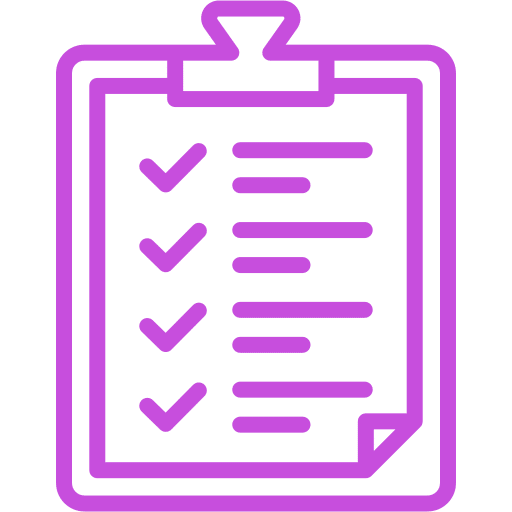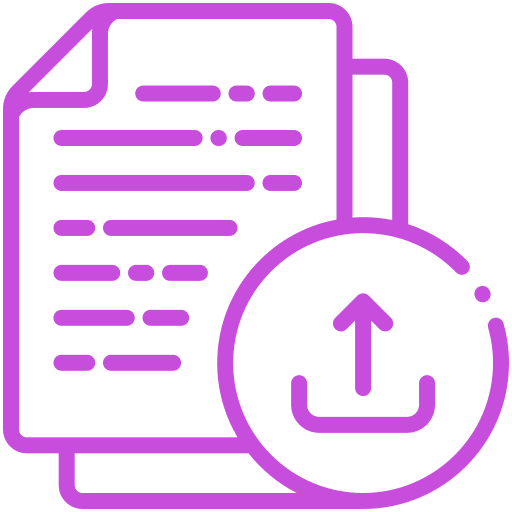OFFLINE TRAINING
30/60/90 Days Bioinformatics Training
A Comprehensive & Intensive Hands-On Command line software based Offline Training program in New Delhi



Intensive Learning

Hands-On Exercise

Interactive Sessions

Individual Practice
"OFFLINE HAND-ON INTENSIVE PROGRAM"
Introduction to Bioinformatics Trainings
In the ever-evolving landscape of biological research, bioinformatics trainings emerge as indispensable resources, empowering scientists with the skills and knowledge necessary to navigate the complexities of genomic data analysis, molecular modeling, and computational biology. Bioinformatics trainings, tailored to cater to diverse proficiency levels, offer a gateway for beginners to delve into this interdisciplinary field while providing seasoned researchers with advanced tools and techniques to propel their investigations further.
These trainings typically encompass a spectrum of topics, ranging from introductory workshops elucidating fundamental concepts to specialized courses delving into cutting-edge methodologies. Participants engage in hands-on exercises, harnessing state-of-the-art software and databases, thereby honing their proficiency in data manipulation, analysis, and interpretation. Moreover, the collaborative nature of these trainings fosters a dynamic learning environment, facilitating knowledge exchange and networking opportunities among peers and experts alike.

Applications of Bioinformatics Training
In this section we are discussing some of the potential areas of application of bioinformatics training & how it can be helpful in these areas to carryout analysis.

Precision Medicine
Bioinformatics trainings enable professionals to analyze genomic and clinical data to tailor medical treatments to individual patients.
Biotechnology and Drug Discovery
Trainings in bioinformatics equip researchers with the computational skills needed to analyze molecular structures, predict protein functions, and design novel therapeutics.
Agricultural Genomics
Bioinformatics trainings support agricultural research by enabling scientists to analyze genomic data from crops and model organisms.
Environmental Monitoring
Bioinformatics skills are essential for analyzing ecological and environmental data, including metagenomic sequencing, biodiversity assessments, and ecosystem modeling.
Public Health Surveillance
Bioinformatics trainings play a crucial role in infectious disease surveillance, outbreak investigation, and epidemiological research.
Different Types of Bioinformatics Trainings
Majorly, there are 3 different types of Bioinformatics Trainings so below we have tried to list them down to help you take better decision if this masterclass will be relevant for your learning and be helpful in your intended area of research.

Introductory Workshops
Introductory workshops are designed for individuals new to bioinformatics. They provide a basic understanding of bioinformatics concepts, tools, and databases.

Advanced Courses
Advanced courses cater to participants with some background in bioinformatics or related fields. They delve deeper into specific topics and methodologies.

Specialized Trainings
Specialized trainings target individuals interested in particular applications or domains within bioinformatics and may focus on niche areas such as pharmacogenomics
Modules for Bioinformatics Training
Bioinformatics trainings not only equip individuals with technical prowess but also cultivate critical thinking skills essential for deciphering complex biological phenomena. As such, they serve as catalysts for innovation, driving advancements in personalized medicine, drug discovery, and ecological conservation.
30 Days Trainings Modules
Insilico Molecular Docking
This one-month intensive training program on Insilico Molecular Docking is designed to equip participants with a comprehensive understanding of the principles and applications of molecular docking in drug discovery. Through a blend of theoretical knowledge and practical sessions, attendees will explore ten key topics:
- Introduction to Molecular Docking
- Principles of Protein-Ligand Interactions
- Preparation of Protein and Ligand Structures
- Docking Algorithms and Scoring Functions
- Virtual Screening Techniques
- Analyzing Docking Results
- Validation of Docking Studies
- Case Studies in Drug Design
By the end of this training, participants will be proficient in the insilico molecular docking process, enabling them to apply these techniques in real-world research scenarios.
Molecular Dynamics Simulation & Post MD Analysis
This one-month intensive training on Molecular Dynamics (MD) Simulation and Post-MD Analysis is designed to provide participants with a comprehensive understanding of the dynamic behavior of biomolecules. The course covers ten essential topics:
- Introduction to Molecular Dynamics
- Force Fields and Their Applications
- System Setup and Initialization
- Energy Minimization Techniques
- Running MD Simulations
- Trajectory Analysis
- RMSD, RMSF, and Other Key Metrics
- Protein-Ligand Interaction Studies
- Advanced Sampling Techniques
- Free Energy Calculations and Interpretation
Through a combination of theoretical insights and hands-on practice, participants will learn to set up and run MD simulations, analyze results, and interpret the data for meaningful insights. By the end of this training, attendees will be equipped to apply MD simulation techniques in real-world research projects effectively.
Insilico Transcriptome Analysis
This one-month training program on Insilico Transcriptome Analysis is designed to provide participants with a comprehensive understanding of gene expression analysis using computational tools. The course covers ten crucial topics:
- Introduction to Transcriptomics
- RNA-Seq Data Acquisition
- Quality Control of Raw Data
- Read Alignment and Mapping
- Differential Gene Expression Analysis
- Functional Annotation of Genes
- Gene Ontology and Pathway Analysis
- Visualization Techniques
- Integration with Other Omics Data
- Case Studies in Disease Research
Participants will learn to analyze transcriptomic data, from raw sequencing reads to biological interpretation. The training combines theoretical concepts with hands-on experience, ensuring that attendees can effectively apply insilico transcriptome analysis techniques in research projects, particularly in fields such as disease mechanisms, drug discovery, and personalized medicine.
Whole Genome Sequencing Analysis
This one-month training on Whole Genome Sequencing (WGS) Analysis is designed to equip participants with the skills and knowledge to interpret and analyze whole genome data. The course covers ten key topics:
- Introduction to Whole Genome Sequencing
- WGS Data Acquisition and Quality Control
- Sequence Alignment and Mapping
- Variant Calling: SNPs and Indels
- Structural Variant Analysis
- Annotation of Genetic Variants
- Population Genomics and Phylogenetics
- Functional Impact Prediction
- Integrating Multi-Omics Data
- Case Studies in Disease Genomics
Participants will gain hands-on experience in processing and analyzing WGS data, from raw sequence reads to variant interpretation. By the end of the training, attendees will be proficient in using bioinformatics tools and techniques for whole genome analysis, enabling them to contribute to genomic research, personalized medicine, and evolutionary studies.
T-Cell Repertoire Sequencing Using Immuno Data
This one-month training on T-Cell Repertoire Sequencing using Immuno Data is designed to provide participants with a deep understanding of immune repertoire analysis and its applications. The course covers ten essential topics:
- Introduction to T-Cell Repertoire Sequencing
- Overview of Adaptive Immunity
- Data Acquisition and Preprocessing
- Clonotype Identification and Analysis
- Diversity Metrics and Immune Profiling
- T-Cell Receptor (TCR) Sequence Annotation
- Comparative Analysis Across Samples
- Visualization of TCR Repertoire Data
- Applications in Disease and Immunotherapy
- Case Studies in Immune Response Research
Through a blend of theoretical instruction and hands-on practice, participants will learn to analyze T-cell receptor sequences, assess immune diversity, and interpret the data for insights into immune function and disease. By the end of the training, attendees will be equipped to apply T-cell repertoire sequencing in immunology research and clinical studies.
60 Days Trainings Modules
Differential Gene Expression Analysis Using R
This Two-month training program on Differential Gene Expression (DGE) Analysis using R is designed to equip participants with the skills needed to analyze and interpret gene expression data. The course covers ten critical topics:
- Introduction to Differential Gene Expression
- Overview of R Programming for Bioinformatics
- Data Import and Preprocessing in R
- Quality Control and Normalization
- Statistical Methods for DGE Analysis
- Visualizing Gene Expression Data
- Functional Annotation and Pathway Analysis
- Multiple Testing Correction
- Integration with Other Omics Data
- Case Studies in Disease Research Using DGE
Participants will gain hands-on experience in using R to perform DGE analysis, from data preprocessing to biological interpretation. By the end of the training, attendees will be proficient in leveraging R for robust and insightful gene expression analysis, making significant contributions to research in genomics, disease mechanisms, and therapeutic development.
Whole Genome Sequencing Data Analysis using Python
This Two-month training on Whole Genome Sequencing (WGS) Data Analysis using Python is tailored to provide participants with the skills to process and analyze genomic data efficiently. The course covers ten essential topics:
- Introduction to Whole Genome Sequencing
- Python for Bioinformatics: An Overview
- Data Import and Quality Control
- Sequence Alignment and Variant Calling
- Handling Large Datasets with Python
- SNP and Indel Annotation
- Structural Variant Detection
- Visualization of Genomic Data
- Integrating Genomic Data with Functional Analysis
- Case Studies in Genomic Research
Participants will engage in hands-on sessions to learn how to use Python for the complete WGS analysis pipeline, from data preprocessing to variant interpretation. By the end of the training, attendees will have the expertise to apply Python in real-world genomic research, contributing to advancements in personalized medicine, evolutionary biology, and more.
Cancer Mutation Analysis using R (T-Cell Repertoire Sequencing)
This Two-month training on Cancer Mutation Analysis using R focuses on leveraging T-Cell Repertoire Sequencing to uncover mutations associated with cancer. Participants will gain comprehensive skills in analyzing and interpreting complex data. The course covers ten key topics:
- Introduction to Cancer Mutation Analysis
- Basics of T-Cell Repertoire Sequencing
- R Programming for Bioinformatics
- Data Acquisition and Quality Control
- Mutation Identification and Annotation
- Clonotype Analysis and Diversity Metrics
- Statistical Methods for Mutation Analysis
- Visualizing Mutations and T-Cell Repertoire
- Integrating Sequencing Data with Clinical Information
- Case Studies in Cancer Immunology
Participants will acquire hands-on experience using R to analyze mutation data and T-cell sequences, providing insights into cancer mechanisms and potential therapeutic targets. By the end, attendees will be proficient in applying these techniques to advance cancer research and treatment.
Single Cell RNA Analysis using R
This Two-month training program on Single Cell RNA Analysis using R is designed to provide participants with a thorough understanding of single-cell transcriptomics. The course covers ten essential topics:
- Introduction to Single Cell RNA Sequencing
- R Basics for Single Cell Analysis
- Data Import and Quality Control
- Normalization and Data Preprocessing
- Dimensionality Reduction Techniques
- Clustering and Cell Type Identification
- Differential Expression Analysis
- Gene Ontology and Pathway Analysis
- Visualization of Single Cell Data
- Case Studies in Cellular Heterogeneity
Participants will gain hands-on experience in using R to perform comprehensive single-cell RNA analysis, from data preprocessing to biological interpretation. By the end of the training, attendees will be equipped to analyze single-cell RNA-seq data effectively, advancing research in cellular biology and disease mechanisms.
Genome Editing with CRISPR
This Two-month training on Genome Editing with CRISPR is designed to provide participants with a comprehensive understanding of CRISPR technology and its applications. The course covers ten crucial topics:
- Introduction to CRISPR/Cas9 Technology
- Mechanisms of CRISPR/Cas9 Function
- Designing CRISPR Guide RNAs
- Delivery Methods for CRISPR Components
- Gene Knockout and Knock-in Strategies
- Off-Target Effects and Their Mitigation
- Screening and Validation of CRISPR Edits
- Applications in Model Organisms
- Ethical Considerations and Regulations
- Case Studies in Genetic Research and Therapy
Participants will gain hands-on experience in designing and implementing CRISPR experiments, analyzing outcomes, and applying this technology in research and therapeutic contexts. By the end of the training, attendees will be equipped to utilize CRISPR for precise genome editing in various biological and clinical applications.
90 Days Trainings Modules (Job Oriented)
Computer Aided Drug Discovery Bootcamp (with ML)
This three-month bootcamp on Computer-Aided Drug Discovery (CADD) with Machine Learning (ML) is designed to immerse participants in advanced drug discovery techniques using computational tools and ML. The program covers ten comprehensive topics:
- Introduction to Drug Discovery and CADD
- Basics of Machine Learning for Drug Discovery
- Molecular Docking and Virtual Screening
- QSAR Modeling and Predictive Analytics
- Data Preparation and Feature Engineering
- Deep Learning in Drug Design
- Integration of Omics Data in CADD
- Predictive Models for Drug-Target Interactions
- Validation and Interpretation of ML Models
- Case Studies and Real-World Applications
Participants will engage in hands-on projects, applying ML techniques to real-world drug discovery problems, from data preprocessing to model validation. By the end of the bootcamp, attendees will be proficient in using ML to enhance drug discovery processes and contribute to innovative therapeutic solutions.
Next Generation Sequencing Data Analysis Bootcamp (with ML)
This three-month bootcamp on Next Generation Sequencing (NGS) Data Analysis with Machine Learning (ML) provides an in-depth exploration of cutting-edge techniques for analyzing complex genomic data. The program covers ten critical topics:
- Introduction to Next Generation Sequencing
- Fundamentals of Machine Learning for Genomics
- Data Acquisition and Quality Control
- Sequence Alignment and Mapping
- Variant Calling and Annotation
- Integrating ML with NGS Data
- Predictive Modeling for Genomic Variants
- Dimensionality Reduction and Feature Extraction
- Visualization and Interpretation of NGS Data
- Case Studies in Genomic Research and Clinical Applications
Participants will gain practical experience in applying ML techniques to NGS data, from preprocessing to advanced analysis and interpretation. By the end of the bootcamp, attendees will be skilled in leveraging ML to enhance genomic research and contribute to precision medicine initiatives.
Insilico Reverse Vaccine Discovery Bootcamp
This three-month bootcamp on In Silico Reverse Vaccine Discovery offers a comprehensive dive into computational methods for vaccine development. Designed for researchers and bioinformaticians, the program covers ten essential topics:
- Introduction to Reverse Vaccine Discovery
- Understanding Pathogen Genomics
- Identification of Potential Antigens
- Computational Epitope Prediction
- Antigen Design and Optimization
- Structural Modeling of Antigens
- Immune Response Prediction
- Vaccine Adjuvant Design
- Integration with Experimental Data
- Case Studies in Vaccine Development
Participants will acquire hands-on experience in using computational tools and algorithms to identify and design vaccine candidates. By the end of the bootcamp, attendees will be equipped with the knowledge and skills to advance vaccine discovery projects, from initial data analysis to developing potential vaccine candidates for further experimental validation.
TakeAway From The Bioinformatics Training
Apart from the topics mentioned above there are a few extra things which you can take away from this training, which will be adding more value to your work
A Participations certificate is a must after successfully completing the training as a sign of accomplishment.

During the sessions we will be using 2 different case studies, in order to better deal with the topic.

A complete step-wise protocol will also be provided to take help from during & after the masterclass.

During the course of 3 days we will be have live 20+ hourse of training sessions with the participants.

An introductory theory document to help you better understand the subject will also be provided.

Hands-On exercises are a must to better learn any technology and be able to reproduce it later.

Expected Outcomes of the Bioinformatics Trainings
After completing all the tasks of this masterclass all of our participants will be able to:
Participants in bioinformatics trainings can expect to develop a deeper understanding of bioinformatics concepts, methodologies, and tools.
By acquiring advanced bioinformatics knowledge and skills, trainees become better equipped to conduct independent research projects.
Bioinformatics trainings foster the development of essential research skills, including experimental design, data management, statistical analysis
Completing bioinformatics trainings enhances participants' professional profiles and increases their competitiveness in the job market.
Registration Details
30 Days Training
Early Bird Registration Ends on June 20, 2024; 11:55 PM

DATE & TIME
Batch Starts 1st & 16th of Every Month
Morning Batch – 10:00 AM – 01:00 PM
Afternoon Batch – 02:00 – 05:00 PM
60 Days Training
Early Bird Registration Ends on June 15, 2024; 11:55 PM

DATE & TIME
Batch Starts 1st & 16th of Every Month
Morning Batch – 10:00 AM – 01:00 PM
Afternoon Batch – 02:00 – 05:00 PM
90 Days Training
Early Bird Registration Ends on June 05, 2024; 11:55 PM

DATE & TIME
Batch Starts 1st & 16th of Every Month
Morning Batch – 10:00 AM – 01:00 PM
Afternoon Batch – 02:00 – 05:00 PM
Terms & Conditions
- All fee paid is not refundable so please read all the terms & conditions before making any payments. If you still have any doubts please contact us and confirm and then only make the payment.
- Participants need to bring their registration tickets along with a valid Institutional ID, then only they will be allowed to attend the session. Please reach out to our team in case of any exceptions.
- Please fill all your details in the form correctly as those details will be used in your certificate as well.
- Participants need to bring their own computer (laptop) system for the program.
- The software tools and other required software tools will be provided from our side for the purpose of this program.
- Participants need to reach the venue and report 30 minutes prior to the start of the sessions.
- Participants need to wear masks all the time inside the premises and abide by the other rules at the premises.
- Particpants need to attend all the sessions in order to be eligible for getting the certificate.
- Welcome email will be sent to all the participants with all the details related to the program. Please check your Inbox/Spam folder for the email.
- All the details of the software installations and how to prepare your system for the Program will be shared with all the participants in the Welcome Email itself.
Contact Us
We understand that you may have some questions before you make the payment for the course. Feel free to get in contact with us through the below given options.
Feel free to drop us a text on
For More Contact Information
